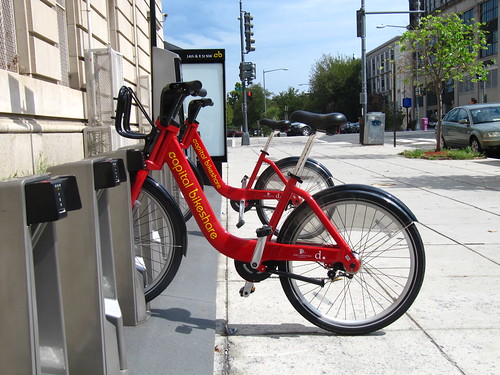Friends and Neighbours,
On June 15, 2011, four weeks from today, Waterloo Regional Council will make a pivotal choice that stands to alter our community for better or for worse.
The decision to build Light Rail Transit will create vibrant, walkable, LRT-supported growth that will help our community wean itself off the gas pump.
The decision not to build Light Rail Transit will mean painful, sprawling alternatives; traffic conditions like the GTA, and the likely clawback of over half a billion dollars by the federal and provincial governments for more “shovel-ready” projects such as LRT in Hamilton.
Friends, neighbours – we are running out of time, and Waterloo Region’s LRT needs your help.
LRT is under serious attack by anti-transit “No to Everything” NIMBYs.
They’re hijacking community meetings, they’re spreading misinformation – anything to keep Waterloo Region from investing more money into transit and better quality of life. They took out an ad in the Waterloo Chronicle last week (http://bit.ly/iB6jrf) that misrepresents the local cost of the project and lies about its tax impact.
Regional Council will not vote for LRT without hearing your support.
Please help support Light Rail Transit one last time – Regional Council votes on LRT on June 15, 2011. You can help out by e-mailing your Regional Councillor, speaking up at a public meeting, composing a letter to the editor, donating money to help TriTAG print posters and run newspaper ads, and showing up to our Rally for Rails II so people watching at home can see just how much of our community supports Light Rail.
Taking one or all of these five steps today can help sway undecided council votes:
1. Tell your Regional Councillor to support LRT. We have a mobile-friendly form where you can send an email to your representatives on Regional Council here: http://tritag.ca/m/LRT
2. Register to speak at the LRT public meetings, even if you only speak for 1 minute. Call 519-575-4420 now (yes, even after business hours) to register with the Regional clerk for meetings on May 31 (Tuesday) at 6pm or June 1 (Wednesday) at 4pm.
Both meetings will take place in Regional Council chambers at 150 Frederick Street in Kitchener. Registration deadline is the May 26 at 4pm – don’t wait until the last minute, call now!
3. Please donate money to help us print posters and put our ads in newspapers.
The opposition is buying advertising space to whip up fear about LRT with the hopes that tax-weary citizens won’t ask if the “No to Everything” crowd has a better plan.
Help counter this misinformation by sponsoring poster printing and ad buys in The Waterloo Chronicle, Imprint, The Cord, The Record, and The Cambridge Times. Whether you can help with $20, $50, $100 or even $200, every dollar helps and will go directly to the cost of advertising. You can view the kind of ads we’re going to run at http://bit.ly/lTqimG, and you can donate by visiting http://www.tritag.ca/about/donate/ or e-mailing donate@tritag.ca.
4. Write letters to the editor. Pick up your favourite local newspaper and write them 200 concise words about why LRT will be good for you and your community.
5. Attend the rally! The community needs to see your support right up to the vote on June 15, so what better way to support LRT than a party? Saturday, June 11 at noon, held at Speakers’ Corner (King and Frederick) in Kitchener – let’s show Waterloo Region what we’re made of!
Thank you for your time, and we hope to see you soon,
TriTAG (The Tri-Cities Transport Action Group)
Read More »

